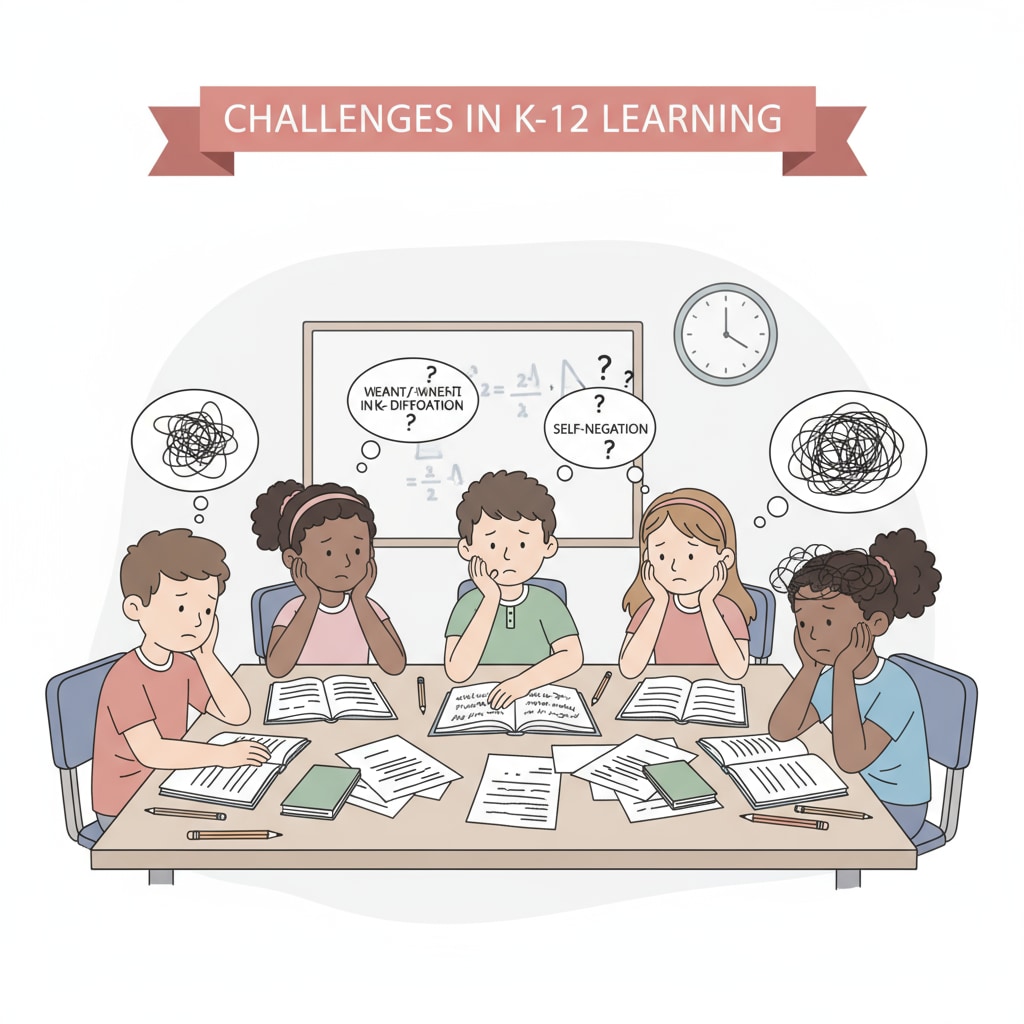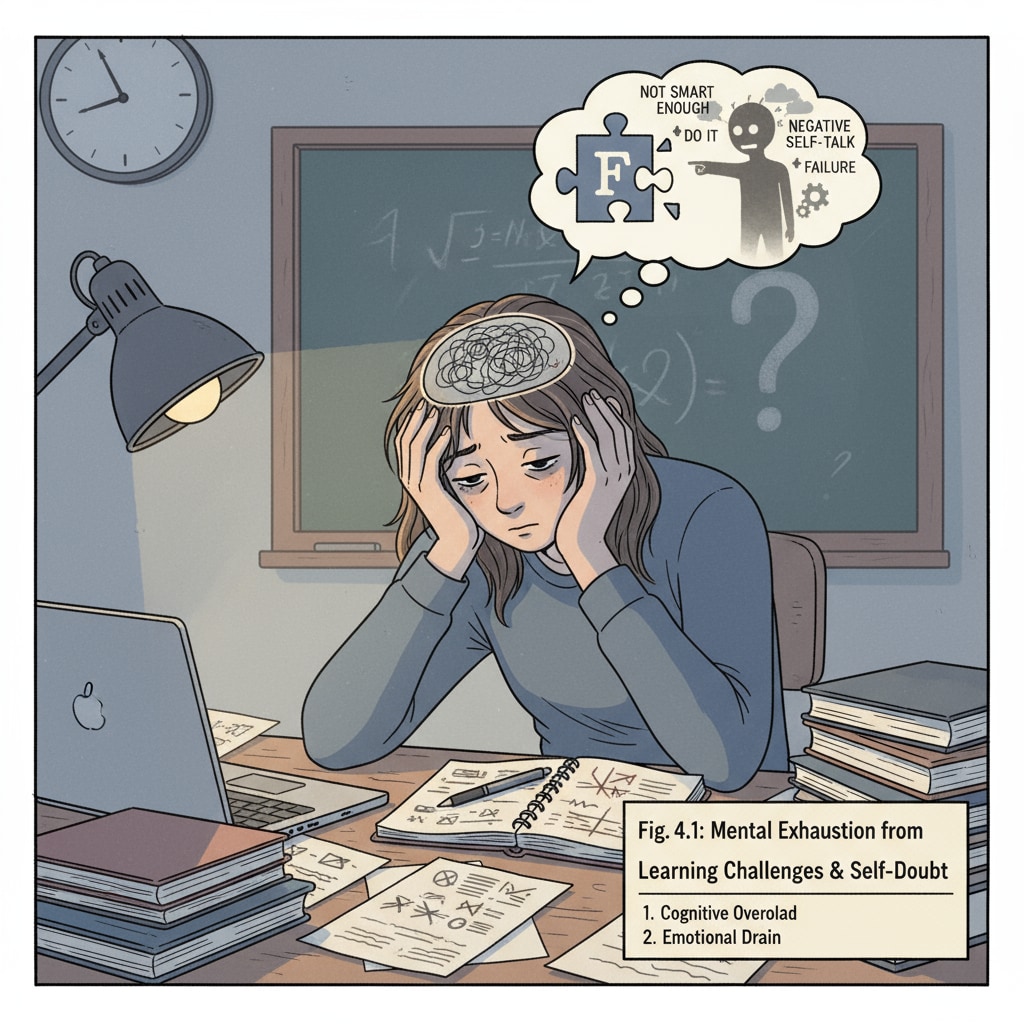Learning difficulties, self-negation, and mental exhaustion are prevalent issues among K12 students. In the highly competitive educational environment of K12, many students struggle with academic challenges, which can lead to a series of psychological problems. These issues not only affect students’ academic performance but also have a profound impact on their mental health and overall well-being.

The Causes of Learning Difficulties
There are various factors contributing to learning difficulties in K12 students. Firstly, individual differences in learning styles play a significant role. Some students may be visual learners, while others may be auditory or kinesthetic learners. If the teaching methods do not match their learning styles, it can be difficult for them to absorb knowledge effectively. For example, a visual learner may struggle in a classroom where the teacher mainly relies on lectures without using visual aids. Learning Styles on Verywell Mind
In addition, external factors such as family environment and school atmosphere also have an impact. A stressful family environment or a negative school atmosphere can create distractions and make it hard for students to focus on their studies. For instance, if parents constantly pressure their children to achieve high grades, it can cause unnecessary stress and anxiety, affecting their learning ability.
The Consequences of Self-Negation
Self-negation is a common consequence of learning difficulties. When students repeatedly face challenges and fail to achieve their desired results, they may start to doubt their abilities and worth. This can lead to a decrease in self-esteem and self-confidence. As a result, they may become less motivated to learn and may even give up on their studies. Self-Esteem on Psychology Today
Mental exhaustion often follows self-negation. Students may feel constantly tired, both physically and mentally, due to the continuous stress and frustration of learning difficulties. This can further deteriorate their academic performance and overall quality of life.

To address these issues, educators and parents need to work together. Educators should identify students’ learning difficulties early and provide personalized support. They can adjust teaching methods to meet the diverse learning needs of students. Parents, on the other hand, should create a supportive and encouraging home environment, focusing on their children’s efforts rather than just the results.
Readability guidance: By understanding the causes and consequences of learning difficulties, self-negation, and mental exhaustion, we can take proactive steps to help K12 students overcome these challenges and develop a healthy learning attitude.


